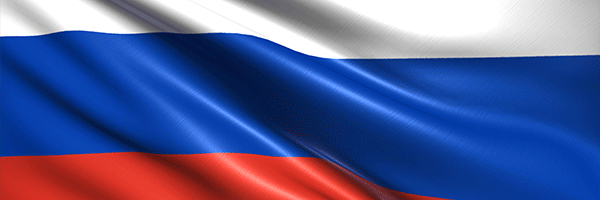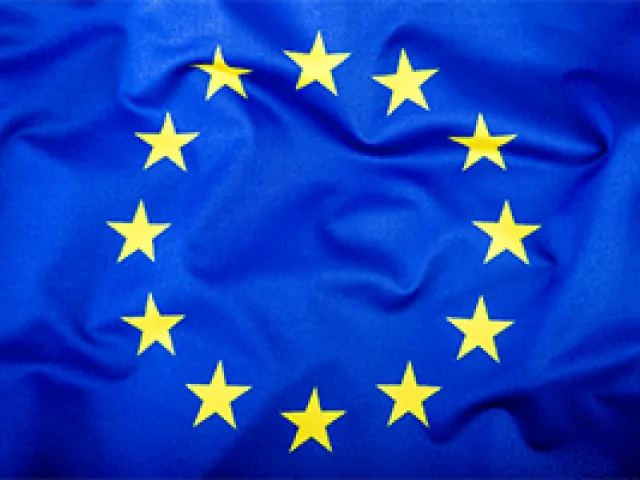Table of contents
This is a compilation of the recent regulatory updates from Russia. Every week, we post an update of what's new, which you can view here.
2023
- May 1: The Center for Research Perspective Technologies (CRPT) has opened the option for pharmaceutical companies to participate in the “Prevention of Sale of Expired Goods" experiment being conducted in other industries with mandatory marking (e.g. dairy). Participation is purely voluntary.
- April 24: Roszdravnadzor, the Federal Service for Surveillance in Healthcare, has proposed the addition of new medicine fields (e.g. dosage form) on packs entering civil circulation.
- April 24: The State Duma discussed the creation of a governmental body to enforce labeling implementation across industries.
- April 3: The experimental phase for Medical Devices is currently ongoing, having been extended from February 28, 2023, to August 31, 2023.
2022
- September 26: The Ministry of Industry & Trade stated there is no need to add pharmaceutical products to the list of goods allowed for parallel import. This list determines which products can be imported to the country without the consent of the right holder.
- September 26: An industry association in the Eurasian Economic Union (EAEU) has proposed the use of QR codes for tracking pharmaceutical ingredients.
- August 23: A new law has been drafted that proposes mandatory labeling for nutritional supplements beginning on April 1, 2023.
- August 23: Pilot for nutritional supplements has been extended until February 2023, and the the scope has been increased due to the reclassification and retirement of some custom codes.
- July 3: The government removed criminal, administrative, and civil sanctions for the parallel imports of certain products without consent from the copyright/patient holder.
- June 5: The Center for Research in Perspective Technologies (CRPT) has launched several initiatives to take advantage of MDLP data for use in activities like drug shortage prediction, consumer price checking, and public health trends.
- May 15: The government is setting up a cross-departmental commission to form criteria for the importation of medicines that were originally packaged for a foreign country.
- May 1: CRPT clarified that “parallel imports” into the Russian Federation must comply with quality requirements, including those related to digital marking.
- May 1: Various media reports and data from CRPT indicate that medicines demand, which spiked in March 2022, is returning to normal levels.
- April 24: The Ministry of Health has imposed deadlines for wholesalers to ship medicines to pharmacies.
- April 24: The Government has launched a limited-region experiment on tracking prescriptions to patients, essentially continuing the chain started by the MDLP.
- April 24: The State Duma is considering a further moratorium on new labeling projects until 2027. It is uncertain whether Nutritional Supplements will fall into this category since the pilot has already started.
- April 17: The government is considering decriminalizing non-compliance to labeling requirements. It is uncertain whether medicines will be included in this legislative package. The legislation already excludes tobacco and alcohol from the decriminalization proposal.
- April 17: The State Duma is considering a further moratorium on new labeling projects until 2027. It is uncertain whether Nutritional Supplements will fall into this category since the pilot has already started.
- March 27: President Putin signed Federal Law No. 64, effective April 10, to allow the importation of medicines in non-Russian secondary packaging with an overlay sticker in Russian.
- March 27: The Ministry of Industry and Trade proposed an extension of the Nutritional Supplements marking pilot until February 28, 2023. No revised deadline for the mandatory marking phase has been communicated.
- March 27: Some websites with the “gov.ru” domain have been unavailable since Tuesday, March 8.
- March 20: Several pharma manufacturers published statements on how they are continuing to ensure that patients in the Russian Federation access medicines without interruption. Many have curtailed new product launches or have suspended marketing campaigns.
- March 20: Some websites with the “gov.ru” domain have been unavailable since Tuesday, March 8.
- March 20: TASS reported Ministry of Trade officials who stated that entry into force of mandatory labeling of nutritional supplements will be delayed for those industries that are in an experimental phase.
- March 20: Nutritional supplements labeling was previously subject to a proposed mandatory deadline of October 1, 2022 (domestically-produced) and November 1, 2022 (imports) in a draft decree. Based on the preceding item, these dates may be extended.
- March 6: The government website regulation.gov.ru has been unavailable since Tuesday, March 8.
- February 27: On March 4, the Ministry of Industry and Trade stated that there will be no suspension to marking operations for medicines. A previous news item stated that marking would be suspended as a result of international sanctions.
- February 27: The government has published a draft decree which would set the mandatory labeling date for nutritional supplements at October 1, 2022.
- February 13: MDLP Notification Mode will be made permanent.
- February 13: A proposed amendment to Decree 1771/2020 would narrow drug shortage thresholds used by Roszdravnadzor in monitoring medicines supply.
- February 13: A Medical Device marking pilot kicked off with a very narrow scope of products.
- February 6: CRPT Guidelines show that the marking code for ONS (Oral Nutritional Supplements) has some differences from the medicines marking code.
2021
- December 5: Roszdravnadzor issued its 2021 Report on Drug Circulation, which discusses fines issued for regulatory violations.
- December 5: Industry discussions continue on finalizing a regulatory framework to allow manufacturers access to MDLP system data on downstream pack movement.
- December 5: The government is considering a long-term extension of the “702” Notification Mode report.
- October 24: CRPT has announced an upgrade to the Drug Circulation Monitoring System (MDLP) schemas to version 1.37.
- October 17: The Ministry of Health has introduced a draft amendment to the legislation on circulation of medicines which defines a counterfeit indicator such as counterfeit goods identified out of total medicines in circulation, with a threshold of 1 in 100 detections or less. If passed, the amendment would go into effect in March 2022.
- October 10: The pilot for marking Nutritional Supplements is gaining momentum, with 132 participants, including 48 manufacturers.
- October 10: The industry is seeking clarity on whether a recent draft decree to Decree 1955 / 2019 to give weekly access to manufacturers and importers of downstream traceability data for their products is applicable to medicines.
- October 3: The Russian Government has published a draft decree for public comment on the provision of MDLP downstream data to manufacturers and importers.
- October 3: CRPT has scheduled MDLP Release 4.41 for October 2, 2021, with a 7-hour downtime window (including OMS).
- September 26: CRPT has planned MDLP Release 4.41, which follows quickly on the coattails of 4.40.
- September 19: The government is proposing enhanced traceability for vital and essential drugs (VED) as well as focused traceability on antibiotics.
- August 15: MDLP enhancements will go into effect on August 28, 2021.
- August 8: The Center for Research in Perspective Technologies (CRPT) announced modifications to the 335 Report.
- August 1: The government will roll out a pilot on labeling hand sanitizer. No decision has been made as to whether marking will become mandatory.
- July 18: Public consultation continues on a draft resolution to allow Roszdravnadzor to monitor medicines on the Vital and Essential Drugs (VED) list at a more granular level, including prices, volumes, and appropriate dispensation. The new law would take effect in March, 2022 and effectively consolidates the many decrees that currently form the traceability legal framework in the Russia Federation.
- July 11: Russia’s Drug Circulation Monitoring System (MDLP) “Notification Mode” has been extended until February, 2022 through Decree 1069. The government has also issued a draft resolution to consolidate existing pharma traceability legislation and allow Roszdravnadzor to monitor medicines on the list of Vital and Essential Drugs (VED) at a more granular level.
- July 4: Russia’s Drug Circulation Monitoring System (MDLP) “Notification Mode” has been extended until February 2022 through Decree 1069. 702 report usage will now be wound down, though the specific rules on this are not in place yet.
- June 27: Russia’s Drug Circulation Monitoring System’s (MDLP) “Notification Mode” and associated reporting options, such as 702 and 703, are scheduled to end on June 30, 2021.
- June 13: The government has updated its code of administrative offenses, including fines for unlabeled medicines. The Ministry of Industry and Trade has also announced a pilot for medical device labelling from August 2021 to February 2023.
- May 23: Decree 673/2021 formalizes the pilot program on the marking of nutritional supplements in Russia. The pilot started on May 1, 2021 and will last until August 31, 2022. The ingredient scope appears to be quite broad.
- May 16: The pilot on the marking of dietary supplements in Russia will start on May 1, 2021 and will last until August 31, 2022.
- April 25: The Association of International Pharmaceutical Manufacturers (AIPM) published a member survey on Russia’s Drug Circulation Monitoring System (MDLP) performance and the consequent business impact in terms of shipment delays and other supply chain disruptions.
- April 18: The State Duma is considering a bill, expected to pass, on criminalizing the counterfeiting of marking codes. Penalties incurred are 300,000 rubles (approximately $4,000) and three-year imprisonment or forced labor.
- April 4: The Center for Research in Perspective Technologies (CRPT) stated that the tracking of dietary/nutritional supplements will be subject to a pilot, and that the legislation will fall under a trade activity legal framework as opposed to medicines framework.
- March 28: The Center for Research in Perspective Technologies (CRPT) publication of performance indicators for its Drug Circulation Monitoring System (MDLP) showed notable delays—at times over 10h—for pharmacies and distributors last week.
- March 21: The Russian Ministry of Trade did not accept an industry proposal to hold the Center for Research in Perspective Technologies (CRPT) liable for poor performance as the operator of the country’s Drug Circulation Monitoring System (MDLP).
- March 14: Conversations continue on the deprecation of selected MDLP reports arising from integration work between the MDLP and other government systems. However, there are industry concerns on the repercussions on quality because the automation of reports cannot be “undone” as the existing reports can.
- February 28: ARFP (Association of Russia Pharma Manufacturers) sent a letter to the Ministry of Trade proposing contractual amendments between manufacturers and the MDLP system operator (CRPT) that would increase CRPT’s liability for system failures.
- February 21: CRPT reported steady growth of the proportion of labeled medicines packs being sold (and reported as such), up from 3% in July/August 2020 to 32% in December 2020.
- February 14: A draft resolution for conducting an experiment to label nutritional supplements has been published for consultation. The experiment, which takes place between April 1, 2021 and March 1, 2022 will focus on production sites and supported by CRPT, which will provide specialized equipment.
- February 7: As of February 1, 2021, crypto codes will once again require payment.
- January 31: Industry discussions continue on the Russian Drug Circulation Monitoring System (MDLP) system performance and the ability to return to full-fledged reporting.
- January 24: Industry discussions continue on MDLP system performance and the ability to return to full-fledged reporting.
- January 17: Public consultation is underway to determine whether MDLP should end the “15-minute” rule as of February 1, 2021.
- January 3: The Center for Research in Perspective Technologies (CRPT) restated its intention to operate in “Simplification Mode” until July 2021.
2020
- December 27: The Ministry of Trade announced an experimental phase lasting approximately 18 months for labelling of dietary supplements. The exact start date has not been set.
- November 29: Roszdravnadzor published an FAQ for distributors and pharmacists for using MDLP notification mode.
- November 22: The Ministry of Industry and Trade expanded its phone and email “Drug Labeling Hotline” to offer stakeholders across the supply chain assistance on MDLP issues, reporting of delays and shipments caused by the MDLP, and advice on legislative acts related to traceability.
- November 15: Further operational guidelines from Roszdravnadzor and CRPT were published for using the 702 and 703 reports under MDLP notification mode.
- November 8: Decree 1779 was signed by the Prime Minister to allow reporting simplifications until July 2021 using new 702 and 703 reports. In certain cases, until Feb 2021, the decree allows parties to continue operations on goods if they have not received an MDLP receipt of confirmation within 15 minutes and applies a 2-hour time limit for information requests by customs authorities, after which a lack of response will not be an obstacle for release of goods into circulation.
- October 25: The Ministry of Industry and Trade published a note stating that the MDLP system will temporarily move to a "notification mode" to provide additional flexibility for supply chain stakeholders to continue to distribute and dispense medicines even in the event of an error or failure to report or acquire data from the system.
- October 11: The Center for Research in Perspective Technologies (CRPT) published outlines for its forthcoming v1.36 technical schema with several modifications to reporting requirements.
- August 16: Russia's Center for Research in Perspective Technologies (CRPT) published a letter to Russian Drug Circulation Monitoring System (MDLP) participants concerning changes to aggregation reporting and new restrictions on reports 911, 914, 915, and 916 that will require companies to revise distribution processes in several situations.
- August 16: Decree No. 1079 has become law in Russia. The law implements several amendments to Decree No. 1556, the core regulation for Russia compliance. Some of those changes include updated processes for crypto code issuance and cancellation, importation, labeling options at customs warehouses, and situations where the MDLP system fails.
- July 26: A new law in Russia—No. 206-FZ—gives the government power to make rules related to non-labeled and non-serialized products produced during the country’s transition period, which ends on October 1, 2020. Roszdravnadzor also published formal rules related to the review of applications for importation of unmarked medicines.
- July 5: Russia’s new marking law has gone into effect as scheduled. The Russian government also published a new decree, No. 955, which gives stakeholders an option to request additional time to ensure that all medicines are serialized and marked before October 1, 2020.
- June 7: Deputies of the Russian State Duma met recently to review requests from industry associations for flexibility associated with the enforcement of Federal Law No. 425-FZ beginning on July 1, 2020. As a result of this meeting, the Russian State Duma is preparing recommendations to the government to include a transition period as a component of the regulation going into effect. The proposed three-month transition period would be implemented to help all companies and stakeholders achieve full compliance and ensure the smooth flow of medicines in the supply chain. It is expected that the government will review and finalize the details of the transition period within the next two weeks.
- May 31: Russian government officials report that they have successfully conducted stress and scalability tests on the MDLP, the country’s track-and-trace system. The officials report that the MDLP is ready for the upcoming July 1 compliance deadline.
- April 19: In a newly published circular, Russia’s Ministry of Industry and Trade is urging manufacturers to expand early reporting on medicines that have been serialized and crypto-coded. The government agency says this will help the rest of the supply chain test reporting requirements.
- April 12: Russian officials published Version 1.35 of the country’s regulatory compliance technical guidelines. The latest version includes new and updated technical reporting schemas.
- April 5: Russia’s regulatory authority reports that companies with the seven nosology medicines should be reporting them to the MDLP system. There have been no updates related to the impact of the COVID-19 crisis on the upcoming July 1, 2020 deadline for reporting all medicines.
- March 29: Russia’s State Duma is scheduled to discuss the COVID-19 pandemic in May. The Duma will assess the country's readiness for the July 1, 2020 deadline for compliance with new serialization regulations. Additionally, the government has published Decree 311, which paves the way for companies to pre-pay for crypto codes.
2019
- December 15: A proposed draft amendment that would adjust the compliance dates for all medicines has passed the third reading in Russia’s State Duma. The amendment is now scheduled to be considered by the country’s Federation Council. If approved, it will then be passed to Russia President Vladimir Putin for signature. Under the proposed amendment, the 12 nosology medicines produced prior to Dec. 31, 2019, and all other medicines produced prior to July 1, 2020, can be circulated in the supply chain without marking compliance until expiration.
- November 24: The initial period of commentary has ended for a Russia State Duma draft amendment that would enact a six-month transition period before enforcement of the country’s new track and trace regulations begins. The State Duma has yet to set a date for official hearings or consideration of the draft amendment.
- November 17: Russia’s State Duma published a draft amendment that calls for a six-month transition period before enforcement of the country’s new track and trace regulations take effect. The draft amendment will soon be discussed and debated in the State Duma.
- November 3: Russia’s State Duma published an amendment proposal to request a six-month transition period for the implementation of product marking and reporting regulations. No final decision has been made.
- October 20: A working group in Russia’s State Duma is considering a six-month transition period for the rollout of marking and compliance reporting requirements. The proposed transition period would begin on January 1 and end on June 30, but no final decision has been made.
- September 29: Russian authorities published an amendment to decree number 1556 that slightly modifies processes related to code acquisition, applications, usage, and payments. Going forward, either pre-payment or post-payment for crypto codes will be accepted. The government also updated tertiary-level packaging requirements. Additionally, Technical Guideline version 1.32 published with a new code_emission event added. Finally, a new draft amendment for contracting and provisioning crypto codes for foreign producers was published.
- September 8: A new Russian government decree that modifies serialization requirements for pharmaceutical supply chain companies has been published. Among other things, Russia Government Decree No. 1118 shortens required crypto codes and sets 180-day deadlines for payments and reporting.
- July 18: CRPT published updated technical guidelines (v1.31), along with new reports that are primarily related to domestic production.
- July 7: CRPT has made v1.30 of the technical guidelines available via its website.
- June 23: The Eurasian Committee published draft requirements highlighting the use of crypto coding for the EAEC countries in alignment with Russia's requirements.
- June 16: Six industry associations published an open letter to the government asking to initiate discussions around industry readiness and a potential shift in the final deadline.
2018
- December 30: Government decree # 1577, which covers the 2019 requirements and deadlines for the 12 Nosologies medicines, was passed and published.
- December 30: Government order # 2963-p was signed, making the multi-industry system of marking and traceability of goods official. This order mandates the usage of crypto technologies in product identification. Medicines for medicinal usage were included, despite the industry's pushback and request for crypto for drugs to be removed.
- December 16: The Association of International Pharmaceutical Manufacturers (AIPM) is preparing a letter that will ask the government to shorten the size of the crypto tail to 44 characters to help ease issues occurring at packaging with the current length of 88 characters. Considering the domestic pharma support by government for longer coding, it's unclear what the response will be to this request.
- December 16: The AIPM has also stopped lobbying for an adjustment to the full implementation deadline of January 1, 2020, as that deadline is now final.
- December 9: New draft technical guidelines have introduced some significant changes into the track and trace guidelines. The 12 Nosologies deadline may end up being in October of 2019, but there has not yet been an official confirmation.
- October 21: CRPT posted a draft implementation guideline for testing the generation, application, and verification of the crypto-protected product identifier.
- October 14: CRPT is holding an educational webinar this coming week on serialization and cryptography for a multi-national pharma audience.
- September 30: CRPT published an extensive Q&A regarding their operational takeover of the central IS Marking system from the Federal Tax Service.
- September 2: A new government decree marked as N. 1018 was published that formalizes the role of CRPT in taking over as operator of the central IS Marking system from the Federal Tax Service effective 11/1. The extension of the experimental pilot to 1/1/2020 was also formalized.
- August 3: The bill to expand the 7 Nosologies list (No. 511039-7) passed in the State Duma and has now been signed and published. The list of conditions has expanded to 12 and now includes hemolytic-uremic syndrome; juvenile arthritis with systemic onset; and mucopolysaccharidosis I, II, and VI types.
- July 22: Government has stated that the 7 Nosologies deadline will be extended to Apr. 1, 2019 and that cryptographic requirements for serialization will formally be required in the upcoming Roszdravnadzor regulations that are due in August.
- July 6: Intentions were confirmed this week around the cryptographic requirements for forthcoming Russia serialization requirements and models for how companies would use cryptographic services.
- June 29: An announcement was made that the track and trace government system is being transferred from the Federal Tax Service to CRPT (a private company), with operational turnover starting Oct 1. CRPT is one of the biggest supporters of the 791/792 cryptographic mandate, adding fuel to the expectation that crypto will be coming to Russia serialization. The expectation is that Roszdravnadzor will be publishing the final regulations in August.
- February 11: Roszdravnadzor published the updated technical interface documentation and regulations for interacting with the technical services (support) of the central FTS system.
- February 4: In an update to the FTS reporting system user guide, new GTIN allocation rules were posted, which apply GTINs to sites rather than a common GTIN across all products.
TraceLink is the only network creation platform designed for the building of fully integrated digital supply networks. Our unique supply chain network technology is being used to power supply chain digital transformation, providing organizations with the tools and capabilities they need to eliminate information silos, improve supply chain visibility, and develop flexible and agile supply chains that are built to withstand disruption. TraceLink’s innovative software solutions enable firms to build robust multienterprise supply chain management systems, leverage advanced supply chain data analytics, and achieve greater supply chain agility. Our suite of multienterprise work management applications can help your organization improve supply chain planning and forecasting, accelerate supply chain optimization, and enhance supply chain resiliency by facilitating seamless real-time information flows and continuous collaboration across supply partners. TraceLink is helping firms create connected supply networks that allow them to respond faster and more effectively to changing market conditions and turn their supply chain into a competitive differentiator.







